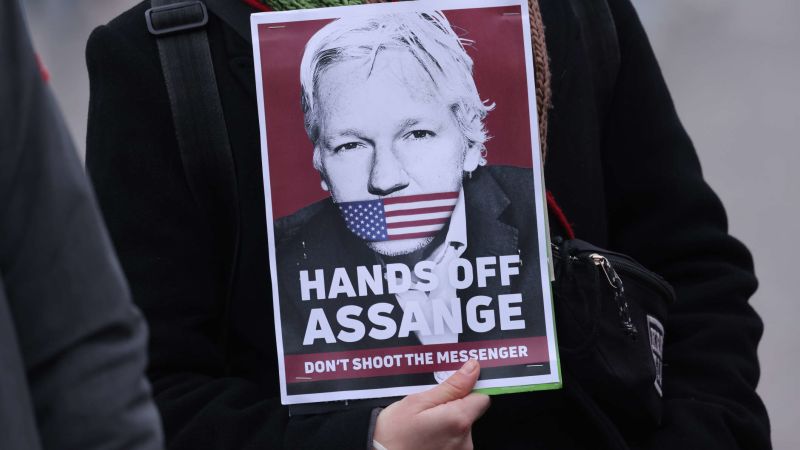President Joe Biden recently mentioned that his administration is considering a request from Australia to drop charges against Wikileaks founder Julian Assange. This comes after the Australian Parliament approved a motion calling for Assange to be released to his home country of Australia. The US authorities have accused Assange of putting lives at risk by publishing secret military documents and have been seeking his extradition on espionage charges for years. Assange is facing multiple charges in the US, including one charge of conspiracy to attempt to hack a computer and 17 additional counts under the Espionage Act for publishing confidential military records obtained through former Army intelligence analyst Chelsea Manning.
The charges against Assange carry a potential sentence of up to 175 years in prison if convicted. Assange has been fighting extradition for the past five years from London’s Belmarsh prison, after spending seven years as a political refugee at the Ecuadorian embassy in London. His case has drawn condemnation from free speech advocates who argue that his extradition could have a chilling effect on press freedoms. Last month, Assange faced a hearing in London where he successfully fought off immediate extradition. He sought permission to appeal the UK’s approval of his extradition, claiming that the case against him was politically motivated and that he would not receive a fair trial.
A panel of two judges in the UK ruled that Assange would not be extradited immediately, giving the US three weeks to provide assurances around his First Amendment rights and guarantee that he would not be subject to the death penalty. If these assurances are not provided, Assange would be allowed to appeal his extradition at a hearing in May. This ruling offers Assange a potential lifeline in his years-long legal battle, during which he gained global prominence for revealing what he described as “compelling evidence of war crimes” committed by US-led coalition and Iraqi government forces. The ongoing proceedings highlight the complex legal and political challenges surrounding Assange’s case and the implications for press freedom and government transparency.
The consideration by the Biden administration regarding dropping charges against Assange reflects the ongoing debate over the balance between national security concerns and media freedom. Critics of the charges against Assange argue that his prosecution could set a dangerous precedent for the prosecution of whistleblowers and journalists. Supporters contend that Assange’s actions endangered lives and compromised national security, warranting legal action. The complexities of the case, including allegations of political motivation and concerns about the fairness of the trial, underscore the challenges in addressing issues of accountability, transparency, and freedom of expression in the digital age.
The potential impact of Assange’s case extends beyond his individual circumstances, raising broader questions about the role of whistleblowers, journalists, and digital activists in holding governments and corporations accountable for their actions. The outcome of Assange’s legal battle will have far-reaching implications for press freedom, government transparency, and the protection of whistleblowers worldwide. The international attention and legal complexities surrounding Assange’s case underscore the need for a nuanced and principled approach to addressing issues of national security, freedom of expression, and the accountability of those in power. The ongoing developments in the Assange case will continue to draw scrutiny and spark debate over the future of journalism, whistleblowing, and the legal protections afforded to those who expose wrongdoing.


